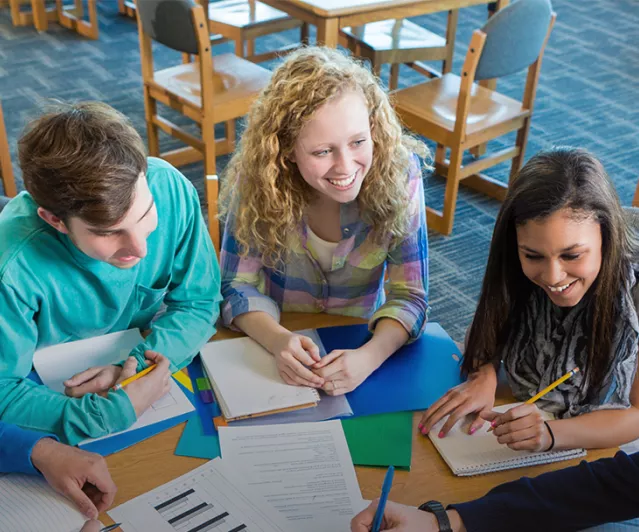
What is the motivation for the project?
Regional and minority languages, such as Frisian, are increasingly coming into contact with migrant languages as more migrants move to officially bilingual or multilingual European regions. Schools in these regions are often already struggling to meet the requirements for national and foreign languages in the curriculum and are now also faced with the need for a different approach to languages. However, how to do this in practice is often unknown to the schools and teachers. While some research into the holistic approach (also called multilingual approaches) has already been carried out for primary education, it has so far been under-researched in secondary education.
What problem does the project solve?
The project focuses on multilingual approaches in the context of secondary education in the bilingual province of Friesland and aims to:
- Develop an intervention to make pupils' and teachers' attitudes towards (learning) the Frisian language and multilingualism more positive. This intervention consists of developing activities aimed at the issues of the participating schools.
- Research will be conducted into the effects of this intervention on the attitudes of pupils and teachers, the pupils' Frisian language skills and the teachers' multilingual didactics.
Project approach
The project has a bottom-up approach:
- Question around a multilingualism issue of the school
- Activity proposal by the project team with the help of a matrix
- Implementation of the activity by the teacher
- Feedback from the teacher on the activity by means of an evaluation form
- Improvement of the activity for the online toolbox
Main principles
- Holistic model of multilingual education
The project combines different approaches to multilingual education: language awareness, language comparison, intercomprehension, immersion and translanguaging. This holistic approach to multilingual education makes the project unique.
- From recognition to using several languages
The holistic approach makes it possible not only to recognise and acknowledge languages but also to use them. In this way, pupils come into contact with languages they do not speak and can use their complete linguistic repertoire.
- Creation in cooperation with teachers
To support sustainability and ownership, the activities are developed in cooperation with the teachers of the different schools. Each school has its own issues regarding the use of multiple languages in the classroom. These individual issues require different approaches and activities.
- Content and language learning
The possibility of using different languages in the classroom is not only important for language teaching but for all subjects. Therefore, activities are not only developed in the context of (foreign) language learning but also focus on content learning such as business subjects.
- Multimodal
The activities do not focus on one modality but on several modalities: reading, listening, writing and speaking.
Project team
- Joana Duarte (project leader)
- Cor van der Meer (project manager)
- Mirjam Günther-van der Meij (researcher)
- Laura Nap (trainee)
- Annika Klein (trainee)
Main results
- Holi-Frysk online learning environment
In cooperation with the Afûk, part of our activities have been digitalised in the online learning environment eduFrysk. In the Holi-Frysk online learning environment you will find various digital activities about e.g. language families, dialects, sentence structure and linguistic landscape. Pupils can work with these activities independently, in pairs or in groups. All activities can be done in Frisian, Dutch or English.
Schools which already work with Searje 36 for the subject Frisian, can find the Holi-Frysk activities through the Mediatheek. Do you want your school to try the digital Holi-Frysk activities and do you not have access yet? Sign up here by sending us your school name, name of contact person and e-mail address. With your own code you can follow the progress of your students. Are you curious and do you want to take a look? Then you can also log in as a guest.
- Toolbox
The Holi-Frysk-toolbox is an open online toolbox containing the teaching activities developed in the Holi-Frysk project. By clicking on one of the activities in the menu below, you can download a pdf-file of the activity with the corresponding worksheets. Some pdf-files contain additional links for e.g. downloading a presentation. The toolbox is available in three languages: Dutch, Frisian and English.






